Edwin Fox Tale

Beez Neez now Chy Whella
Big Bear and Pepe Millard
Fri 19 Sep 2014 22:47
|
Edwin Fox a Voyage, a Storm
and a Love Story
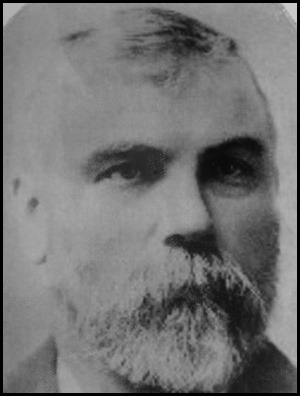 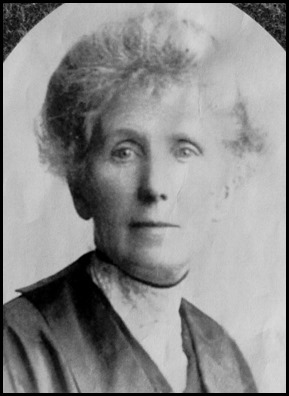 Captain John Johnson and Maggie
Dean
John Johnson was born in Eastham on
the 12th of January 1844, his father was a shoe maker, he had two sisters Mary
and Anne and a brother Samuel. He ran away to sea when he was just fourteen and
travelled many times on the Edwin Fox, he rose through the ranks eventually
become ships captain. His experiences aboard were mainly good ones and on one
occasion the ship departed on the 28th of January from London to New Zealand,
with ninety five passengers on board when he fell in love with a beautiful young
lady called Margaret Dean, she was twenty years old travelling with her sister,
Rebecca aged twenty two. They were both housemaids from Derry on an assisted
passage en route to work for Mr. Alcom in Hokitika in one of his hotels.
The disaster to
the ship Edwin Fox, bound from London to Lyttelton, by which that vessel was
compelled to put in to Brest for repairs, has been noticed in our columns on a
previous occasion. We now reprint from the Scotsman and extract from a letter
received in Edinburgh from a passenger on board, giving further particulars:
Brest Bay, West of
France,
Wednesday,
February 5, 1873.
We were
delayed in leaving the Thames till the 29th ultimo. All went well till Saturday
the 1st inst., when a strong gale got up, but in our favour. We were willing to
endure a little rocking while the wind was favourable, but during Saturday night
it came round almost right ahead. The ship laboured heavily all night, and we
were about 150 miles south-west of the Scilly Isles, in the Bay of Biscay. About
8.30 am Sunday, it blew a terrific hurricane, and all the passengers were
keeping out of the way, and the most of them in bed, when a tremendous sea
struck the ship on starboard beam, broke the bulwark in a thousand pieces,
carried away all the boats but one, and killed the doctor and a sailer. All the
men that could crawl got on deck into every hole and corner, while all the women
and children were closed down below. When I got on deck I thought heaven and
earth were to meet. No pen can describe the scene; the sea was running mountains
high, the ship was labouring fearfully, and all on board held out no prospect
but immediate death. I am no coward at sea, but I gave up all hope. The crippled
state of the ship was a sad sight, and the dead bodies rolling from side to side
as she heaved. Several of the crew injured, and worse than that, the most of the
rest got drunk on the stores that were exposed on deck, and went to their beds –
anything more disgraceful never was done by a crew. Mostly all the single men
crept into the forecastle; the captain was in his place, but what could he do
without men? He then put about the ship, and returned. The hurricane continued
all day, and every moment we expected to be down. Seeing that the sailors were
either disabled or drunk, I suggested that the single men would do what they
could. One company, with me, commenced to throw cargo overboard; while another
company, with a plumber who was a passenger, commenced to rig up temporary
pumps. You may be sure we wrought with a will, and in a short time the cargo was
going over rapidly, and the pumps in motion. About 2.30 pm a large steamer
passed quite near us, but could render no assistance, as the sea was running
mountain high. Then night was coming on, and what was to be done? The rate we
were going at would bring us on the rocks before morning and ‘lie-to’ was
considered equally dangerous. Log, charts, and signals, and everything that any reckoning could
be calculated by, were swept away. These were trying moments to our captain and
officers, and at length they concluded to proceed for some time nearer land,
About 8 pm, we sighted a light – supposed to be the Scilly Isles – when he had
to alter course to keep off the rocks. About midnight, another steamer passed
us, but would not venture any assistance, as the gale was still terrific. During
all this the pumps we kept going as hard as could be done, and we had the
satisfaction to have gained upon the water considerably, whereby we concluded
that she was making little water below, as it was going in on the hatches in
large quantities. We continued the pumps all night without a moments rest. About
1 am Monday, a third steamer came in sight, and in answer to our rocket the
captain veered round and asked what we wanted. Of course we asked him to stay by
us until morning. He did so to our great gratification. It turned out to be the
Brazil mail steamer Copernicus, of Liverpool. About ten o’clock on Monday the
captain launched a boat and gave us a rope. You may be sure that we all rejoiced
to find ourselves in tow. During the night we drifted considerably, and were
nearly 100 miles from this port when the steamer took us in tow. The hurricane
moderated to a strong gale during the day, but a fearful sea was rolling, and we
plunged into it heavily as the mountainous seas struck us. The pumps were still
kept going, and at dusk we had the satisfaction to suck her dry. During all this
time you can better imagine the confusion that I can describe it; but thank God,
we anchored here about 4 am – Tuesday. What is to be done with us now, I cannot
say; but we have had very little comfort as yet, particularly the women and
children. The beds are all wet, and everything about the ship is soaked with
water. However, we are in life, and we must not complain of discomfort. The
doctor and sailor were at the pump when they were killed. The pump was smashed
into a hundred pieces, a piece of which nearly cut the doctor in two. Poor
fellow! He was a fine young man named Longlees. His body has just been coffined.
The sailor’s body was washed overboard. I almost forgot to state that half the
crew jumped on board the steamer when she came alongside on Monday morning, and
left the captain with only boys and injured men. All the passengers exerted
themselves as much as possible to assist him, in which part my previous
knowledge of sea life came in very handy. I expect something will be done
tomorrow to relieve us. Several of the passengers lost everything they had in
the world. The boxes were dashing to and fro with fearful violence, and went
into pieces. This evening three disabled vessels came into this port, and the
steamer that took us in tow had to keep her pumps going constantly. There must
have been great disaster to shipping, as it was
fearful.
Interesting real time
account and proof to us that this lady acted as a bobbing cork and kept all
aboard as safe as she could considering the crew was lacking in
commitment.
Captain Johnson found himself in a
stressful situation in Brest, France because the ship had not faired well in the
storm in the English Channel, many passengers complained at his leadership in
the dire circumstances including some that were believed to be jealous of the
captains new romance. A Philip Moore who was twenty four and travelling with his
brother Robert and his sister Eleanor from the Isle of Man, was one of the main
instigators of the complaint, however, Mr. Moore was found after the inquest to
“have such palpable malice in bringing the unfoundered charge we did think
an example should be made of him dismissing him from the ship”, although he
did actually carry on the voyage !!!
After repair work in France twenty
three passengers declined to get back on and instead returned to England. The
Edwin Fox carried on with her journey once again, leaving on the 5th of March
1873. Four people died during the remainder of the voyage from fever and
consumption. The ship docked in Lyttelton on the 27th of June and was placed in
quarantine for ten days. The three month passage had taken five.
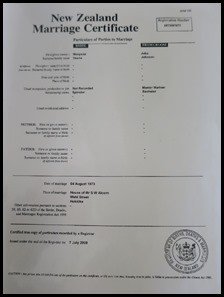 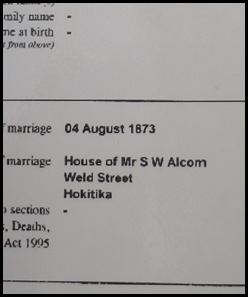 The happy couple were now madly in
love and married in Hokitika on the 4th of August
1873, at the house of Mr. Alcom. Margaret returned on the Edwin Fox to
England leaving her sister, now in Otago. Incredibly Rebecca went on to marry
the jealous complainant – Philip Moore. They had two children that both died
along the with their father from tuberculosis thus ending the connection with
New Zealand for the Dean family.
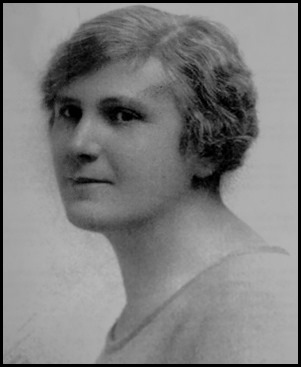 Margaret and John Johnson had a large
family of nine children, two of them born at sea, one on the Edwin Fox, Susan Selina in the Indian Ocean at latitude 10.5 and
longitude 86 East on the 25th of June 1874, the other children were called
Elizabeth, John, Edith, Robert, Rachel, Edward, Arthur and Muriel. Robert was a
captain in the army, sadly killed by a sniper in World War One at the Battle of
the Somme.
Maggie often sailed with her husband
and their love continued as a deep and happy one. John retired at the age of
forty eight to London but died just five years later. Margaret was devastated
and wore black until the day she died -she missed her husband so very
much.
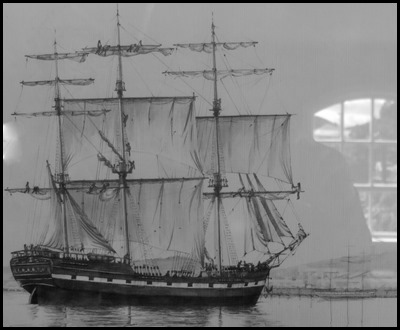 ALL IN ALL WHAT A
STORY
INDEED
|